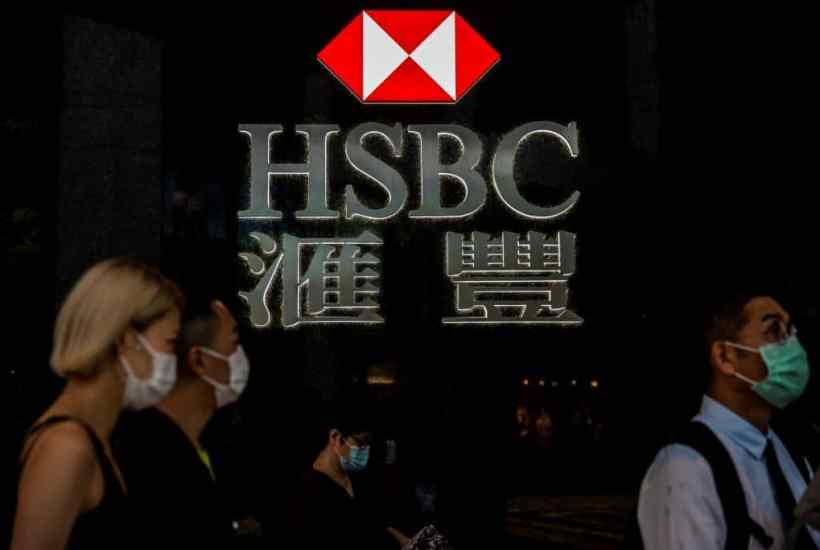HSBC was being more than a little disingenuous when it claimed on Thursday that Communist party cells don’t have much influence on the businesses in which they are installed. Try telling that to Xi Jinping, under whom the CPP has extended its tentacles into every aspect of nominally private businesses in China.
The British bank was responding to a report in the Financial Times that it has become the first foreign lender to install a CCP committee in its investment banking subsidiary in China. While neither confirming or denying the report, an HSBC statement played down the importance of the cells, saying, ‘they do not influence the direction of the business.’
This is simply wrong. As Su Wei, a professor at a party school in Chongqing, has stated: ‘Party cells are set up to make sure the company’s operations are in line with the principles and policies of the CCP.’ While Xiao Yaqing, who heads the State Assets Supervision and Administration Commission, has said, ‘Party leadership plays an important role in team-building and corporate governance.’
Or as the party’s Global Timeshas put it, ‘Party cells inside private firms can help guide and supervise enterprises to follow the country’s laws and regulations and safeguard the legitimate interests of all parties.’ More than 30 Chinese companies listed on the Hong Kong stock exchange have written the party into their articles of association, typically describing the party as playing a core role in ‘providing direction (and) managing the overall situation’
It is true that in the past party cells in private companies were largely decorative if they existed at all, and foreign joint ventures were mostly exempted. But that has changed radically under Xi, as the CCP has extended and strengthened its role into every aspect of life in China. Within companies, the party must be consulted on every major decision. Companies are effectively under party guidance, and the Party is the arbiter of whether a company thrives or dies.
Any organisation is required by law to allow a party cell if it has at least three party members, and most nominally private companies now have them. Tech companies in particular have come under pressure to strengthen their ‘party construction work’. More recently foreign firms have come under increasing pressure to not only embrace party units, but to revise the terms of their joint ventures to allow the party a final say over business operations as well as investment and recruitment decisions.
In the case of HSBC, a party cell potentially gives the CCP access to sensitive client data as well to strategic business decisions – decisions that might have implications well beyond China.
HSBC is headquartered in London but makes most of its profit in Hong Kong. It has ambitious plans to expand across China, and is no stranger to controversy. In 2021, the banking giant publicly supported Beijing’s draconian national security law, which crushed liberties in Hong Kong, even before the text had been published. This followed a warning from a leading pro-Beijing figure that it could no longer take its ‘unique privileges’ in Hong Kong for granted. It was also accused of freezing the accounts of Hong Kong democracy activists and organisations at the direction of the police. The bank refused to comment on individual accounts, but has always insisted that it must abide by the laws of whatever jurisdiction it is operating in.
In a grilling before the Commons Foreign Affairs Committee last year HSBC’s chief executive Noel Quinn was accused of ‘double-standards, hypocrisy and appeasement’. In response he said, ‘I can’t cherry-pick which laws to follow’.
It is not as if Xi has made any great secret of what he expects of private companies in China. Addressing the private sector and entrepreneurs in a lecture reproduced in a rambling volume of speeches and writings, he says. ‘You should always love the motherland, the people and the party; practice the core values of socialism,’ urging private companies to follow ‘the great tradition of answering the call of and following the party.’
China is fast becoming a minefield for foreign businesses. Many are deciding that doing business in China is now more hassle than it is worth. They are weighing reputational risks, as well as the growing practical risks of operating amid endless Covid-19 lockdowns and in an environment that is increasingly hostile to foreign businesses. There are also the dangers of being caught up in the crossfire of growing geopolitical tensions between China and the West. But HSBC presses on. It almost certainly had no choice about its party cell, but it does have a choice about how it describes its relationship with its new minder. In Xi’s China, a party cell is not a glorified trade union or social club. It is far, far more sinister than that, and HSBC owes it to its shareholders and customers to be more candid about what it means for its business.
Got something to add? Join the discussion and comment below.
Get 10 issues for just $10
Subscribe to The Spectator Australia today for the next 10 magazine issues, plus full online access, for just $10.





















Comments
Don't miss out
Join the conversation with other Spectator Australia readers. Subscribe to leave a comment.
SUBSCRIBEAlready a subscriber? Log in